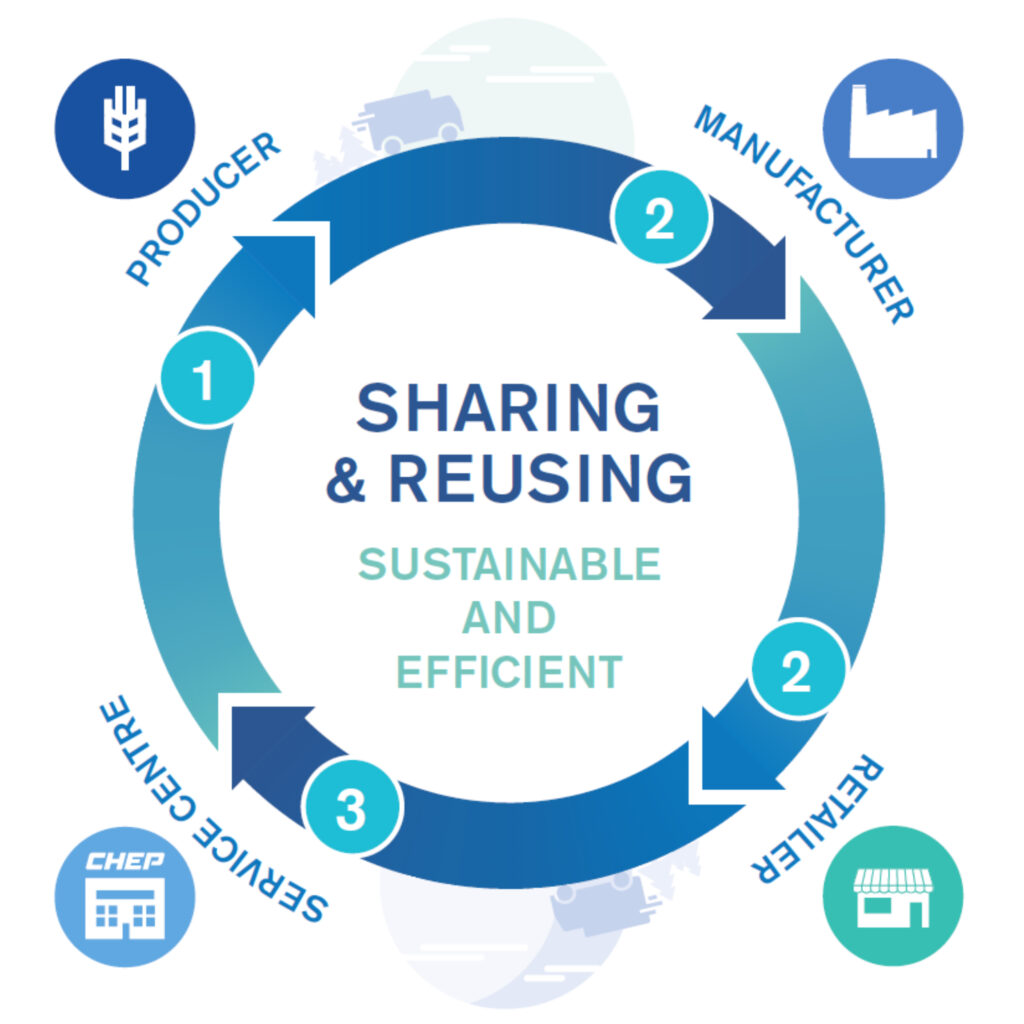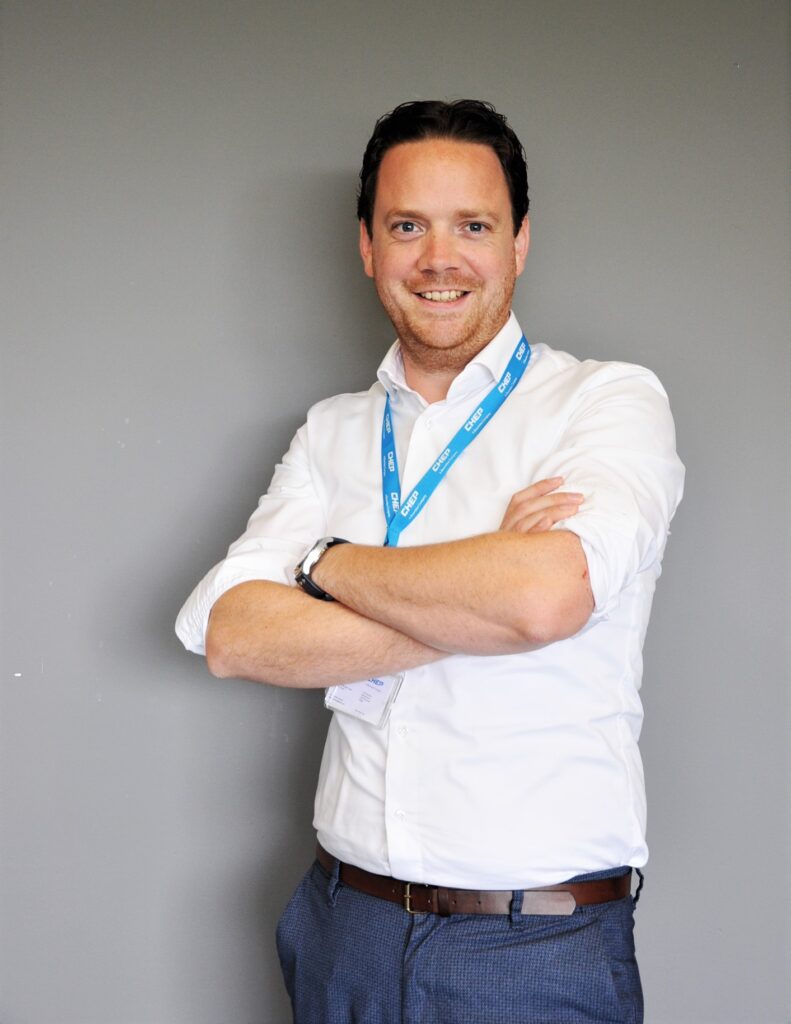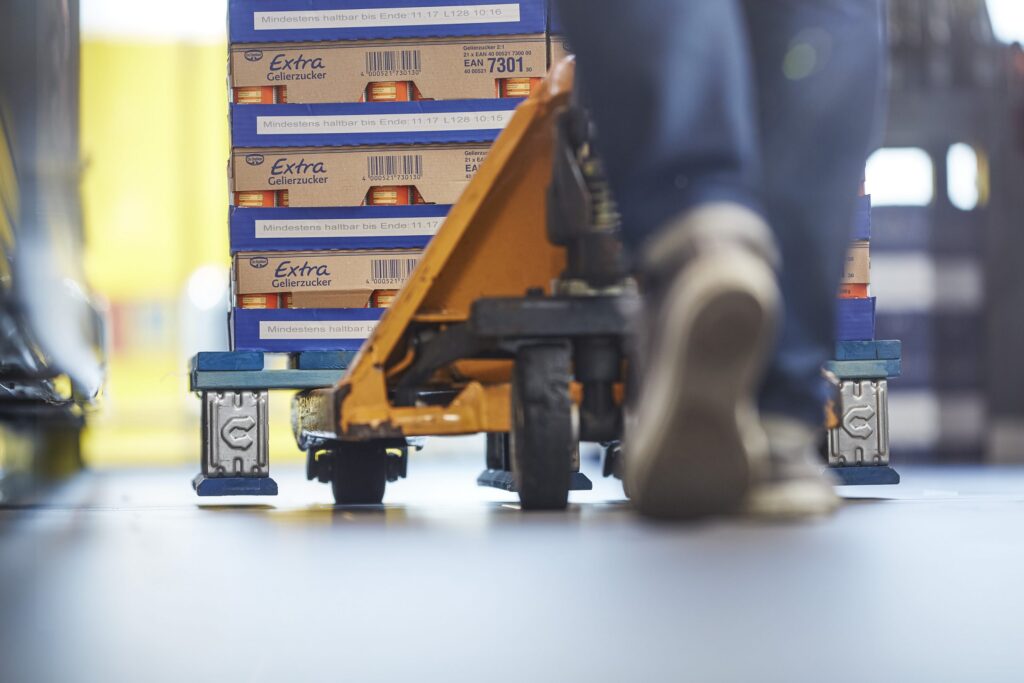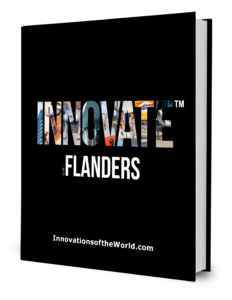The way the world makes, moves, and sells goods is changing. While technology has increased consumer choice, society expects businesses to reduce the environmental impact of meeting that demand. The time has come to transform how we get products to people.
CHEP built one of the world’s most sustainable logistics businesses through its share and reuse model, known as ‘pooling’. Having more than 70 years of experience, their model is more relevant than ever.

Pooling: a circular model within reach
The share and reuse pooling model follows the principles of the circular economy, making it inherently sustainable, creating more efficient supply chains by reducing operating costs, with less impact on natural resources, and decreasing carbon emissions and waste.
“Our customers don’t buy our pallets or containers, but rent them”, explains Vanessa Stark, Country General Manager of CHEP Benelux.
“We collect them back after use to inspect and repair, before sending them back out into the supply chain. Just like shared cars. This way we offer an efficient, safe and sustainable solution helping our customers to move more with less.

How to create a positive impact?
“We feel it’s no longer good enough for businesses to be less bad by reducing impact alone”, says Marc Meeuwis, Transformation & Innovation Manager at CHEP Benelux. “That is why we want to achieve true circularity by creating regenerative supply chains.”
Regeneration literally means ‘rebirth’, and is about delivering life’s essentials every day, but in a natural and people-positive way. It means moving from degenerative systems that destroy nature to regenerative models that restore and replenish nature while strengthening society. It means giving back more than you’re taking.
We Celebrate The Partnership With Living Tomorrow Largely Contributing To The Success Of This Book, They Are The Voice And Champion Of INNOVATE™ Flanders That Unifies The Community!

“Reuse, resilience, and regeneration are at the core of this and are embedded in our sustainability targets”, says Vanessa Stark. As an example, CHEP has the ambition to plant two trees for every tree they use for their pallets by 2025. In addition, they are committed to achieving Carbon Neutrality by 2040, ten years earlier than the targets set out in the Paris Agreement. “We want to get to zero impact and beyond, for delivering the supply chain the world needs for a sustainable future.”

Zero waste
Innovation and digital solutions will play a major role in achieving this goal. CHEP is therefore adapting to future needs and challenges.
This can be achieved when everyone in the supply chain works together, participates in collaborative projects, and wants to become part of the circular economy as well. Vanessa Stark: “A small and easy step to begin with, is returning our blue pallets after you’ve used them or whenever you see one that is not being used as it should be, so others can reuse them.”

Who is CHEP?
CHEP helps to move more goods to more people, in more places than any other organisation on earth. Their typical blue pallets and containers form the invisible backbone of the global supply chain, connecting people with life’s essentials.
CHEP serves the fast-moving consumer goods, fresh and frozen goods, beverage, non-food, packaging, retail, and general manufacturing industries. Originating in Australia, CHEP operates in 60 countries worldwide as part of the Brambles Group, making it the biggest pooling network in the world.

In Europe alone, CHEP manages 150 million pallets and containers, has a network of 300 service centers, and 275.000 delivery points at manufacturers, suppliers, and receiving locations in retail, e-commerce, food service, and logistics service providers.

The scale and density of the network mean they can be faster and more responsive to customers’ changing needs and that CHEP has visibility on pallet flows from the farm to the factory, from the shop floor to the front door. That unique position gives them valuable insights for customers – and a sustainable competitive advantage.














